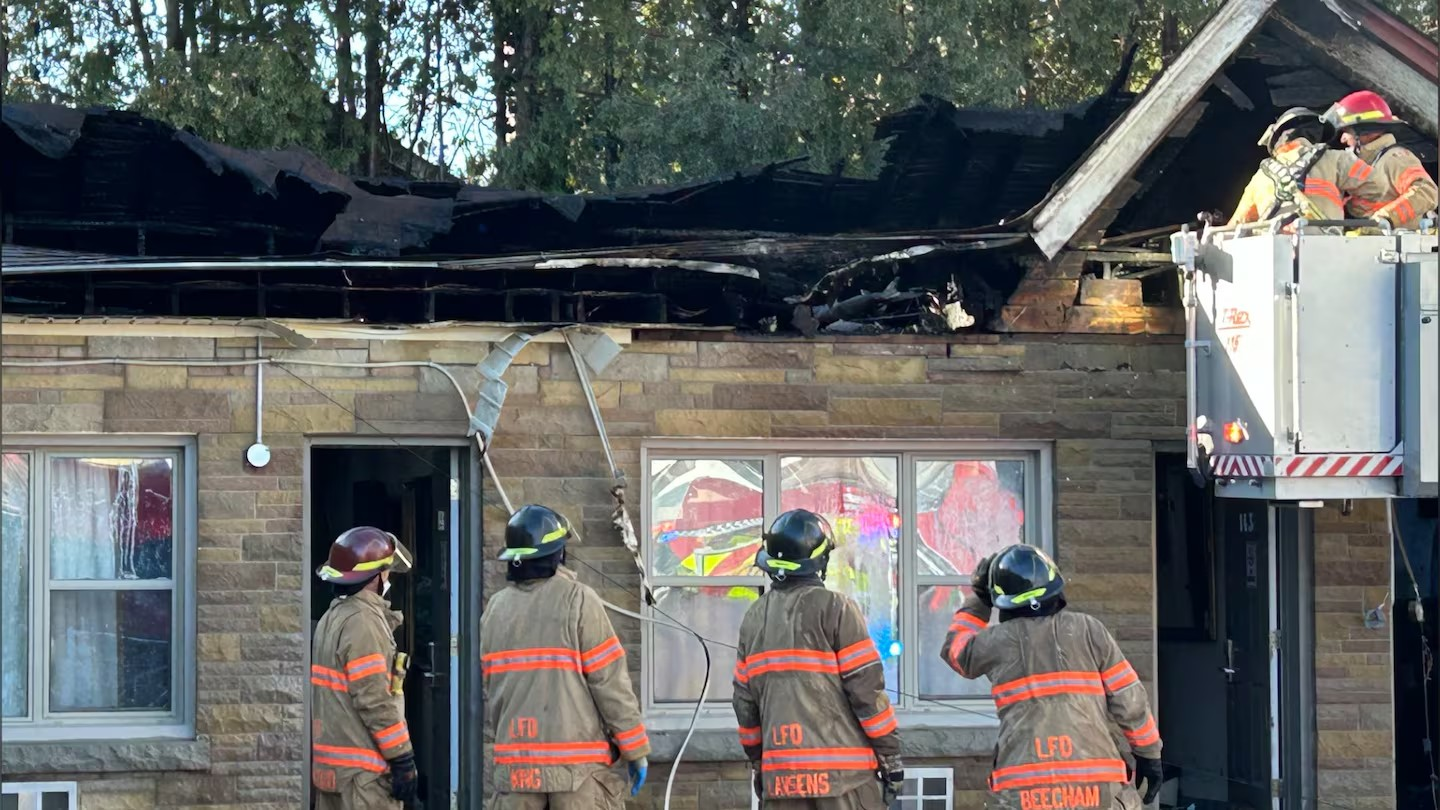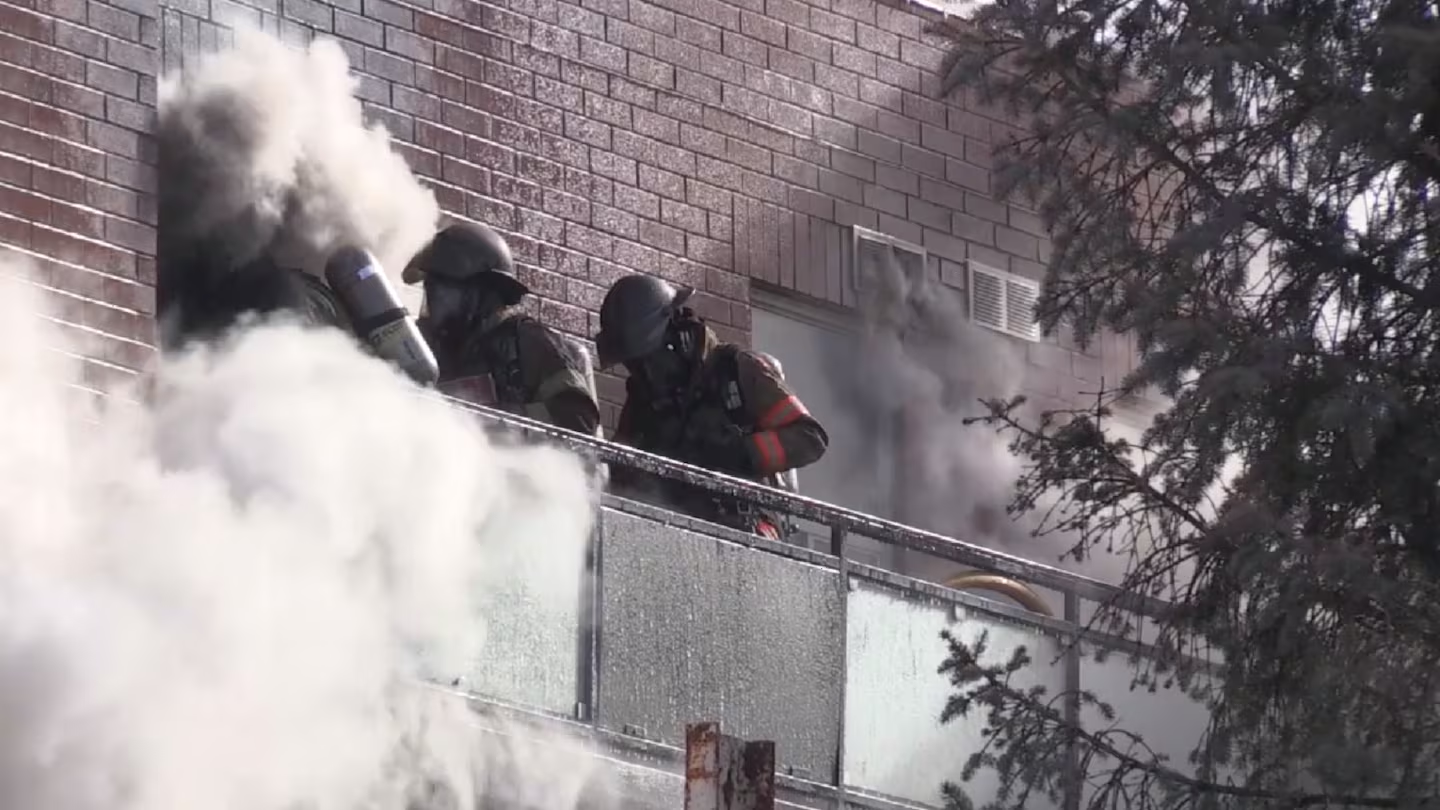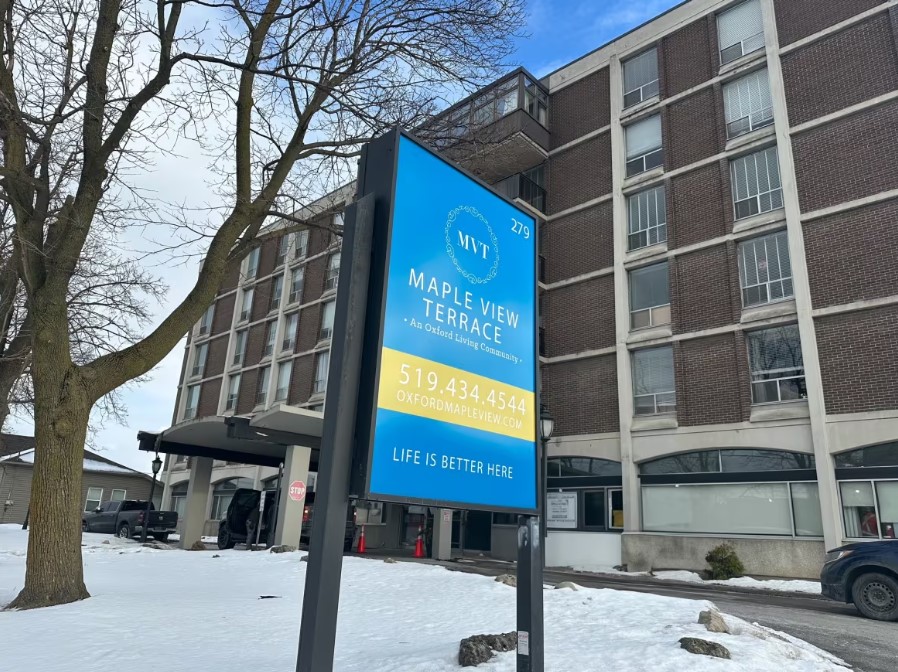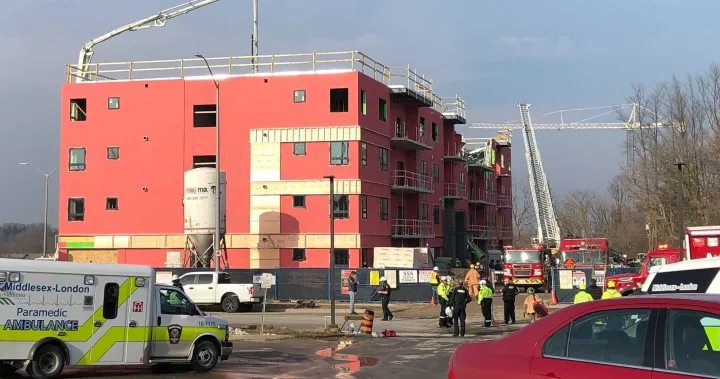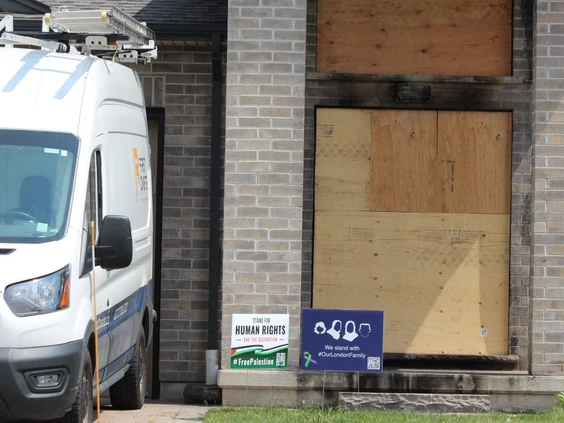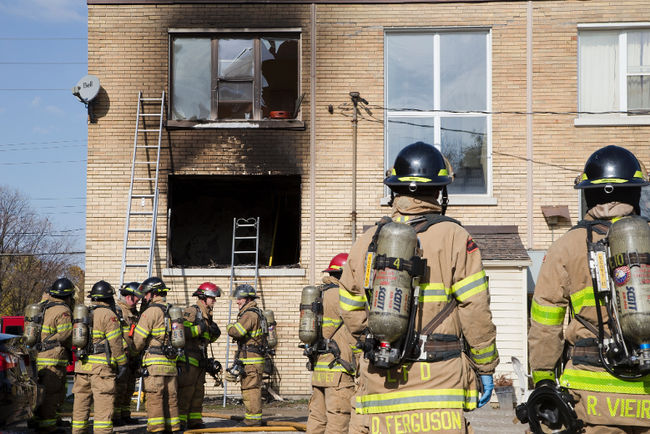
This November 2014 fire in an unregulated Oxford Street group home killed resident David MacPherson, 72, and spurred a tough new city bylaw. (File photo)
The face of the controversy has been sent to jail, and London has responded with a tough new bylaw.
But the question remains: Has housing become that much better for vulnerable adults in London?
“We still have work to do,” said Steven Harrison, executive director of Canadian Mental Health Association (CMHA) Middlesex. “Housing makes or breaks a person’s journey to wellness.”
CMHA Middlesex has 141 people on a wait list for supportive housing — getting help in their own homes — and 155 on a list for permanent housing provided by the agency itself.
With a crunch in London’s psychiatric emergency room and a crystal-meth crisis, “As fast as we get people housed, some wind up back on the waiting list,” Harrison said.
London’s housing crisis for people struggling with addiction and mental illness — and Ontario’s failings to crack down on unregulated housing for the poor and vulnerable, an issue it was warned about decades ago — was exposed by the November 2014 fire in an unregulated group home on Oxford Street, run by Keith Charles, that led to the death of David MacPherson, 72.
Two weeks ago, Charles was sentenced to 20 days in jail, to be served on weekends, for 12 fire code violations at the building.
City hall is working to license the first two operators of privately run group homes under a new bylaw passed because of the fire.
Even so, people remain in crisis, said Jacqueline Thompson, executive director of LifeSpin, a street-front anti-poverty agency on Dundas Street.
“The system doesn’t really give them the support they need. They don’t know how to cook a healthy meal or pay for heat and hydro,” she said. The housing people are forced to take puts their health and lives at risk, Thompson said.
“They are isolated, ghettoized, and left to fend for themselves. They are treated like second-class citizens.”
There have been improvements in London after the 2014 fatal fire that focused criticism on different provincial and city agencies for failing to respond to signs of trouble at Charles’s apartments.
Under a new protocol, when fire inspectors find a high-risk situation, they contact a team of community support agencies to help the person.
The two operators under consideration for city licences have shown they seem up to the job, bylaw boss Orest Katolyk said.
“It’s night and day (from Charles’s places),” he said. “There are staff on site, food available, social programs. It appears they are making it work.”
But the city and private operators can do only so much, said Jeff Schlemmer, executive director of Neighbourhood Legal Services in London and an advocate for group- home regulations.
Private operators rely on residents’ provincial disability cheques to provide service, but those cheques are barely sufficient for shelter, never mind staffing and programs, he said. “I don’t see how they can do it. I don’t see how they can afford to operate.”
Ontario gives some municipalities, such as St. Thomas and Hamilton, top-up payments for care and treatment, Schlemmer said.
City council should tell the province London needs some of the same help, he added.
The province, Ottawa and the city all have programs and new money for housing, Harrison said.
“Everybody is talking about housing right now.”
But, Harrison added, “There doesn’t seem to be a co-ordinated game plan. They’re not working in harmony with each other.”
The province is boosting funding for housing supports. Municipal and federal governments are boosting money to build new units.
There’s no sense yet how the new units built by some governments will come with housing supports provided by others, Harrison said.
How far does London have to go to solve the housing problem?
“It’s a moving target,” Harrison said. The economic downturn of 2008 threw a whole new group of people into economic and mental-health trouble. London’s drug crisis continues to exacerbate the problem, he said.
Source: ‘Still work to do’ housing vulnerable | The London Free Press

